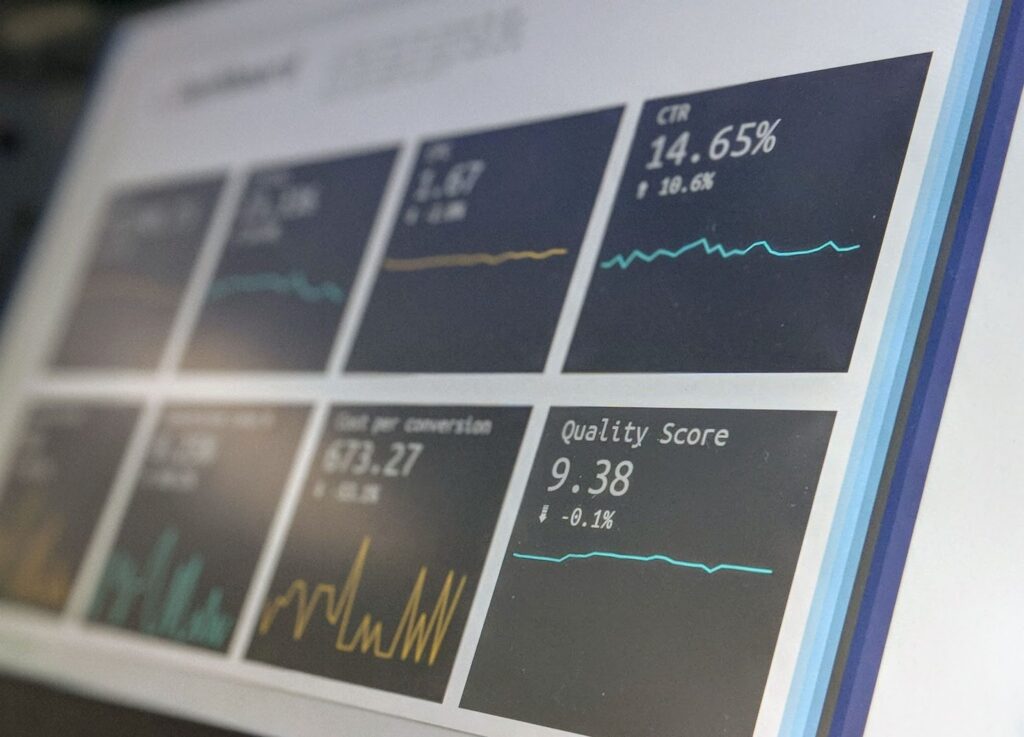Data is big news. From headlines that scream ‘Solar Energy Shines Brighter with Data Analysis’ and ‘How Can Big Data Analysis Help Professionals in the Music Industry,’ it’s no wonder that professionals across industries seek data science educational opportunities.

Middle managers and young professionals charting their career path have always had to maintain an attitude of lifetime learning to bolster their promotability; there’s probably never been a more accurate statement to describe career advancement in 2021. One article, published in the UK, states, “Data is the new oil in terms of driving business competitiveness and innovation. As organizations increasingly rely on information from data for their decision making, the role of the data scientist will become ever more important.” [efn_note]https://www.fenews.co.uk/featured-article/69792-fast-track-your-career-by-upskilling-to-data-science-and-data-engineering.[/efn_note]
If you are a mid-level executive or young professional working in operations, finance, IT, and even in human resources, using data to assist you in decision-making is necessary. The industry you are in can push your decision even further.
Healthcare, a booming industry, is also leading the way in the need for data scientists. This need has led to nurses, PA’s, and even doctors going back to school. And this is happening across healthcare sectors. For example, hospice providers are using data analytics to maintain and accelerate their competitive edge with referral partners, anticipating results in value-based care. Data allows them to demonstrate their value to their referral partners. [efn_note]https://hospicenews.com/2021/06/15/data-analytics-gives-hospice-an-edge-in-value-based-care/.[/efn_note] And with the pandemic, many healthcare systems already believe that data exists to help them predict recovery from pandemics. This type of information would be invaluable in future pandemics.
In farming, data is used to look at the risks to crops regarding molds and other fungi. “This would allow for more well-timed applications of fungicide, which is critical for disease management.” [efn_note]https://www.producebluebook.com/2021/06/16/all-about-drones-data-analysis/#.[/efn_note]
In fact, in researching, you may be hard-pressed to find an industry that isn’t looking into the need for data scientists or related roles. At Juniata College, we believe this rapidly growing field will present many job opportunities emerging across many disciplines. Our program is designed for professionals with bachelor’s degrees in other disciplines who want to learn data science and requires no prerequisite courses in computer science or statistics. The program will be 30-32 credits of courses taught entirely online. We often offer optional once per semester weekend boot camps for cohort building and software setup.
“Career advancement is a critically important concern for many professionals. The post-pandemic career landscape will require professionals to update their skills to advance their careers. As a result, our online data science program is gaining momentum with working professionals in a variety of different fields. If you want to understand how data science intersects with your field and learn the modern data tools and technologies to help you and your organization make better decisions, look no further than our data science program,” said Dominick Peruso, Professor and Chair, Department of Accounting, Business & Economics.
A solid data science masters level program will teach you to:
- Analyze data to drive effective decisions
- Learn techniques and tools to manipulate/transform data from both structured and unstructured sources
- Identify patterns in datasets
- Understand the different types of machine learning algorithms
- Understand appropriate data visualization techniques
- Communicate technical information clearly to specific audiences (oral and written) and
- Understand ethical guidelines applicable to data management, algorithm development, and data analysis
As one recent article states, “There are various roles within data science – machine learning expert, data engineering, data analyst, data visualization expert, and more. These choices and career opportunities can be confusing.” [efn_note]https://www.siliconrepublic.com/people/aon-anna-coyle-data-analytics.[/efn_note] Their advice? Talk to your employer or mentor about your industry and organization and discuss the options for advancing your career in one of these roles. Furthering your education can mean a lifetime career path and opportunities to lead the way in your organization.
